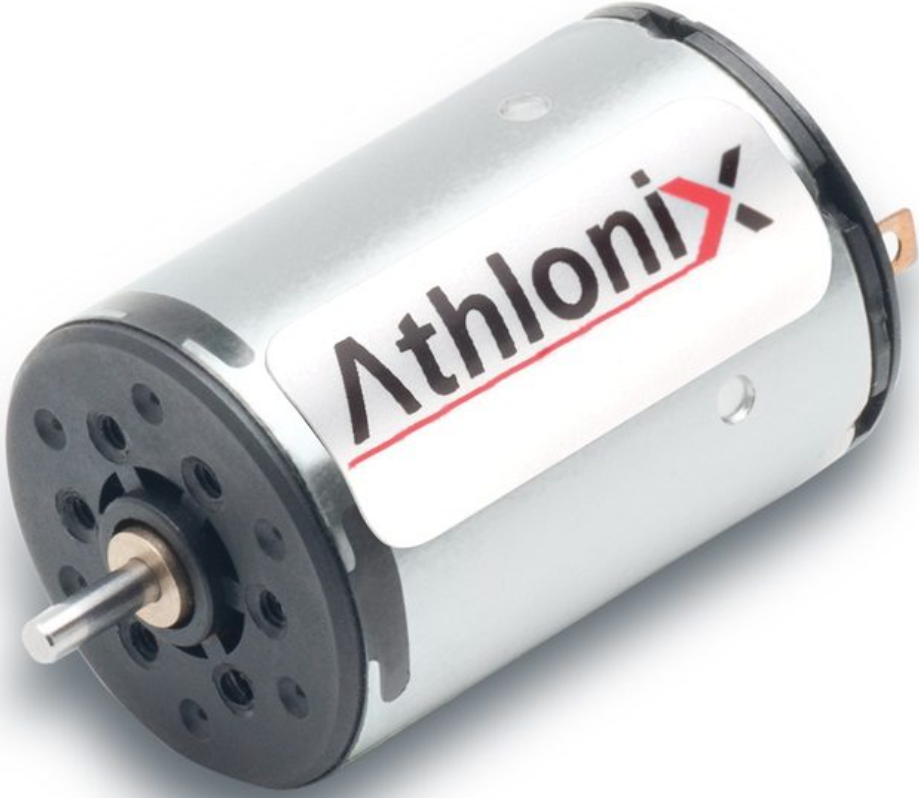Portescap Offers Motors for Humanoid Development

Humanoid robots, designed to operate in close interaction with humans, rely heavily on smooth and controlled joint and limb motion. This makes the selection of the motors that power the axes of motion critical. Alongside high torque density and responsiveness, efficiency to enable long battery life is key, and reliability is also important. Achieving freedom of movement requires integrating numerous axes of motion, which is best accomplished by working closely with an expert in this field.
In education and therapy sectors, humanoid robots are used to assist hands-on learning and development across a range of subjects and requirements. In the study of engineering, students can develop skills in programming, while in health and therapy settings, patients can receive rehabilitative care through humanoid robot interaction.
Humanoid robots can be equipped with a 'brain' tailored to their specific tasks, supported by targeted programming and artificial intelligence. Despite this customization, they share a common human-like form, including hands or grippers. While sensors and tools can be added for physical modularity, the motor skill requirements for humanoid robots remain broadly similar across various tasks.
For robot developers, the general universality in physical motion enables a single humanoid design to be used as a basis for multiple applications. However, to achieve this scale of movement and utility for widespread tasks, humanoid robots typically need to optimize 20 or more degrees of freedom. Accordingly, the operational performance of the actuators that power these axes of motion is crucial.
Increasing torque density and efficiency
Portescap, which designs and manufactures miniature motors, recently specified a motion solution for an existing humanoid robot design. The robot manufacturer needed compatibility with their existing drives and controls but wanted to increase torque density and reduce mass. This would be central to improving the robot’s precision by optimizing control of movement, increasing responsiveness, and reducing inertia.
The robot developer also wanted to extend battery lifetime, so the motors needed to have high efficiency. With more than 20 motors per unit, and robots used across a diverse array of environments, reliability was also a priority. The relatively high number of motors per robot, combined with the purchasing demands of the end-user markets, meant that the need to balance cost with value was also important.
The engineering team determined that the characteristics of a brushed DC motor would best fulfil the requirements. Providing simplicity of control, this motor design would ensure integration with the humanoid’s existing architecture. While achieving the cost-point required by the OEM, the inherent characteristics of a brushed DC motor would be well-matched to a humanoid’s close human interaction, where the advantages of high torque at low speed would enable fine control. The stable and predictable performance of a brushed motor design would also suit this environment.
Coreless motor
Portescap specified a 16DCT Athlonix motor, based around a coreless design. This would save significant weight compared to incorporating a traditional iron core and enable greater responsivity and smoother motion thanks to reduced inertia. Neodymium magnets would also increase torque density by achieving a stronger magnetic field, enhancing the interaction with the motor windings.
The coreless design was also specified to increase efficiency and reduce energy consumption by removing the effects of hysteresis and eddy current losses associated with a conventional iron core DC motor. Precious metal commutation would also enhance efficiency by reducing resistance and minimizing the voltage drop across the brush-commutator interface.
Miniature motor customization
The optimized ironless construction of the motors allowed cooler operation and improved power density. Motor inductances were adjusted to match drive requirements, ensuring optimal speed and torque characteristics. To further minimize weight, the engineers customized the windings with lightweight, self-supporting coils. Combined with the coreless design and neodymium magnets, these advantages achieved up to an eight per cent reduction in motor diameter while delivering the necessary torque.
To further increase durability, as well as improve torque transfer, the engineers also integrated the pinion gear into the motor shaft. This approach would optimize alignment and enhance control at each axis, minimizing play, which would also reduce mechanical wear.
Thanks to the collaboration between the robotic and motion engineering teams, the developer was able to achieve the targeted size and weight as well as the required motion profile for each axis.
1.The news above mentioned with detailed source are from internet.We are trying our best to assure they are accurate ,timely and safe so as to let bearing users and sellers read more related info.However, it doesn't mean we agree with any point of view referred in above contents and we are not responsible for the authenticity. If you want to publish the news,please note the source and you will be legally responsible for the news published.
2.All news edited and translated by us are specially noted the source"CBCC".
3.For investors,please be cautious for all news.We don't bear any damage brought by late and inaccurate news.
4.If the news we published involves copyright of yours,just let us know.
BRIEF INTRODUCTION
Cnbearing is the No.1 bearing inquiry system and information service in China, dedicated to helping all bearing users and sellers throughout the world.
Cnbearing is supported by China National Bearing Industry Association, whose operation online is charged by China Bearing Unisun Tech. Co., Ltd.
China Bearing Unisun Tech. Co., Ltd owns all the rights. Since 2000, over 3,000 companies have been registered and enjoyed the company' s complete skillful service, which ranking many aspects in bearing industry at home and abroad with the most authority practical devices in China.


